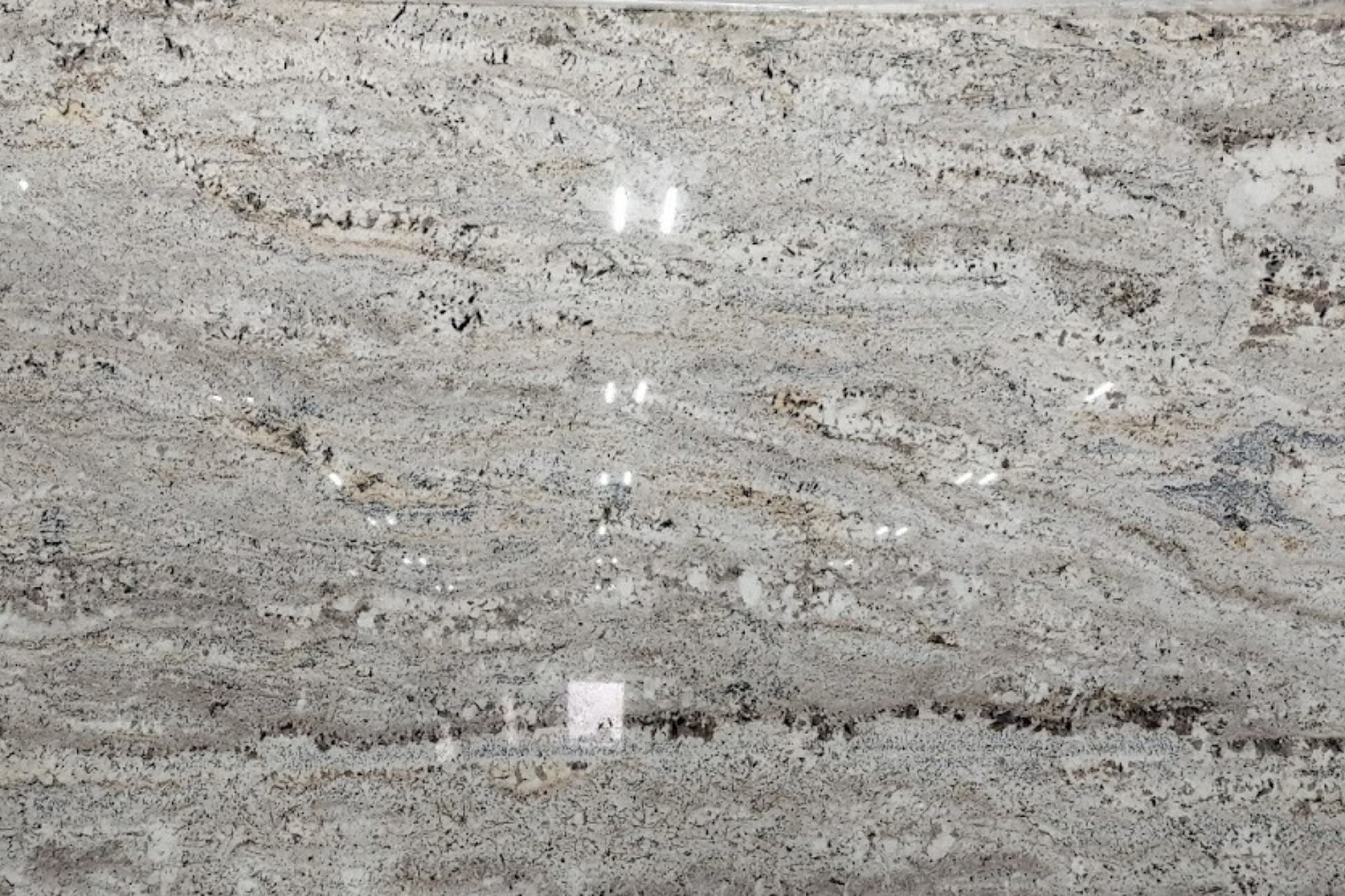If you’re frequently resealing or cleaning your granite countertop, experiencing stubborn stains or discoloration, or noticing chips and cracks that grow despite repairs, it’s time to consider a replacement seriously. Damaged surfaces also pose health risks by hosting bacteria or mold, which directly impact your family’s well-being. An uneven surface or unexplained loose fixtures may indicate an underlying issue like cabinet damage. Essentially, your countertop should be a pleasure to use and admire, not a chore to maintain. There’s much to explore and understand about countertop care and replacement—your journey toward a better kitchen can start right now.
Key Takeaways
- Stubborn stains and persistent discoloration suggest the granite countertop has absorbed liquids due to improper sealing, indicating irreversible damage.
- Small cracks and chips, more than cosmetic issues, can grow and compromise the countertop’s structural integrity, posing hygiene and safety risks.
- Frequent resealing or cleaning, coupled with visible wear and tear, may indicate that the granite countertop is nearing the end of its lifespan.
- Unstable or loose granite countertops could be a sign of damaged cabinets underneath, causing uneven surfaces and warping.
- Old, deteriorated countertops can pose health risks, such as exposure to radon gas and the presence of hazardous materials like asbestos.
Recognizing Granite Countertop Damage
Spotting damage on your granite countertop is the first step towards determining whether you need a replacement. As a homeowner, you must be vigilant about the telltale signs of wear and tear. You don’t have to be an expert to notice visible issues.
Stains or discoloration, for instance, can indicate that your countertop has absorbed liquids over time due to improper or worn-out sealing. For homeowners, Richmond VA granite countertops can be vulnerable to such damage, making regular maintenance and professional care essential for longevity.
Another issue to watch out for is an unstable or loose countertop. It’s a serious matter that not only compromises the aesthetics but also poses a potential risk for accidents. The cause might be due to damaged or shifting cabinets beneath the granite.
Also, if your countertop surface has become uneven, this could be a sign of warping due to moisture damage or natural settling. An uneven surface isn’t just an eyesore but can also make food preparation difficult.
Lastly, if you frequently need to reseal or clean your countertop, it’s a clear sign that your granite may be nearing the end of its lifespan.
Cracks and Chips: More Than Cosmetic
While you might dismiss small cracks and chips in your granite countertop as merely cosmetic issues, they can actually be a significant cause for concern.
Over time, these seemingly minor imperfections can grow, compromising the structural integrity of your countertop.
Cracks and chips can also collect bacteria, compromising your countertop’s hygiene. They may even become a breeding ground for mold, especially in damp environments like kitchens and bathrooms. This not only affects the aesthetic appeal of your countertop but can also pose serious health risks.
Moreover, chips and cracks can impact the overall functionality of your countertop. For example, a cracked granite countertop can be dangerous, especially if you have young children who may accidentally injure themselves.
While some minor chips can be repaired, larger cracks often require a complete countertop replacement. It’s important to consult with a professional to assess the damage and determine the best course of action.
Don’t wait until the cracks and chips become larger and more noticeable. If you notice these signs, it’s high time to consider new granite countertops services Richmond.
Stubborn Stains and Discoloration
Although granite countertops are known for their durability, they’re not immune to stains and discoloration. Over time, if your countertop hasn’t been properly sealed, it can absorb liquids that cause stubborn stains.
You might see telltale signs like dark spots or rings from oils, coffee, or acidic substances that have soaked into the granite. Sometimes, these stains are more than just surface level. They can seep deep into the granite, causing discoloration that can’t be scrubbed away.
If you’re noticing areas of your countertop that are persistently darker, even after cleaning, it’s a sign that the granite has absorbed stains. Though a professional cleaning service might restore some color, extensive stains often indicate that the damage is done.
And it’s not just a matter of aesthetics. Stains can degrade the quality of the granite, making it more susceptible to further damage. The presence of stubborn stains and discoloration is a clear indication that you need a new granite countertop.
You don’t want your beautiful kitchen marred by unsightly blemishes. So, if cleaning isn’t working, consider replacement.
Erosion and Wear: The Invisible Culprits
Beyond the obvious signs of stubborn stains and discoloration, your granite countertop may be silently suffering from erosion and wear. This could be the invisible culprit diminishing its lifespan. Constant exposure to water, especially around the sink area, can lead to gradual erosion, even with granite’s renowned durability. You mightn’t notice this at first, but over time, it can make the surface rough and uneven.
Accumulative wear is another stealthy enemy. It’s not just about big spills or accidents; it’s the daily use—chopping, slicing, and hot pots—that can slowly take a toll. The sealant can wear thin, leaving the granite vulnerable.
Though the damage may not be as visible as a stain or a crack, it’s just as significant. If you notice your countertop becoming increasingly rough or the sealant needing frequent reapplication, don’t ignore these signs. They’re clear indicators that your granite countertop has aged and needs replacing.
Outdated Design and Aesthetic Appeal
Has your kitchen or bathroom lost its spark due to an outdated granite countertop? It’s a common issue for many homeowners. Trends evolve, and what once was the height of fashion can now seem tired and dated. Your countertop might be in perfect condition, but if it’s not in sync with current design trends, it’s likely diminishing the aesthetic appeal of your space.
Remember, your countertop is a focal point, central to your kitchen or bathroom’s overall look. An outdated design can make the entire room feel outmoded. Perhaps it’s the color that’s no longer in vogue, or the pattern feels too busy for today’s minimalist trends.
Maybe it doesn’t match the style of your newly renovated space. You don’t need to settle for a countertop that clashes with your style. A new granite countertop can dramatically transform your space, giving it a fresh, modern look.
Choosing a timeless design guarantees that it will remain appealing no matter how trends change. So, if your countertop feels like it’s stuck in the past, it’s time for an upgrade.
Health Risks Associated With Old Countertops
While your granite countertop may still look good, it could be harboring unseen health risks. Over time, the sealant on your countertop can wear off, making it a breeding ground for bacteria and mold. These microorganisms can cause a host of health problems, including respiratory issues, allergies, and food poisoning.
Additionally, chips or cracks in your countertop can also accumulate food particles and moisture, leading to the growth of harmful bacteria. If you’re constantly battling with mold or a persistent unpleasant smell, it’s a clear sign that your countertop needs immediate attention.
Radiation is another concern. Granite is naturally radioactive, and while the levels are usually too low to cause harm, older, deteriorated countertops could potentially expose you to unsafe levels of radon gas. Long-term exposure to radon is linked to lung cancer.
Lastly, if your countertop is old and you’ve recently started experiencing unexplained health issues, it could be due to the countertop material. Some older countertops may contain harmful substances like asbestos, which is extremely hazardous when inhaled.
In Summary
So, if your granite countertop is plagued with persistent stains, chips, cracks, or signs of wear, it’s high time to contemplate a replacement. Don’t let an aged or damaged countertop hamper your home’s functionality or aesthetic appeal. Whether you’re dealing with outdated materials or simply seeking a modern refresh, Richmond VA granite countertops from Tiger Granite and Marble offer the perfect solution. Remember, keeping up with your home’s needs—especially with expert countertop upgrades—can considerably boost your property value. Stay informed, make wise decisions, and ensure your home remains a beautiful, safe, and valuable space.

